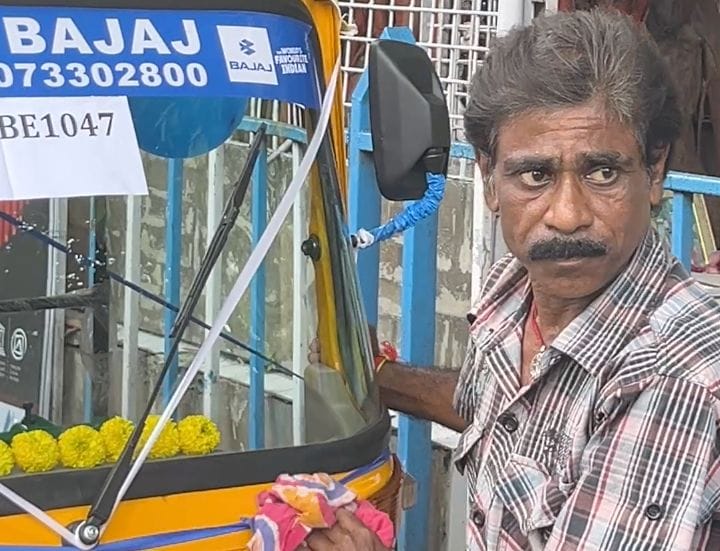Kolkata, India: In a story of hope and rehabilitation, Subrata Sarkar, an ex-convict who served 33 years of imprisonment, has officially started his new life as an autorickshaw driver. The initiative, which launched today, is a crucial step in his reintegration into society, providing him with a sustainable livelihood after decades behind bars.
Overcoming Decades of Incarceration
Mr. Sarkar was convicted at a very young age and sentenced to life imprisonment. He was released from the Presidency Correctional Home on July 25, 2024, after spending over three decades in custody. Upon his release, he faced significant financial and social challenges. His rehabilitation was made possible through the After Care and Rehabilitation Programme of the Probation and After Care Section under the Department of Correctional Administration, Government of West Bengal. The South 24 Parganas District Administration and the Transport Department also played a key role in his journey.
The new chapter in his life was made possible by a route permit from the Transport Department and a loan of ₹2,33,600 from the State Bank of India’s Pramathesh Barua Sarani Branch.
Flagging Off a Second Chance
The formal flag-off ceremony for his autorickshaw service took place today at Rashbehari at 12 noon. The service will operate on the route from Pratapaditya Road (Rashbehari Avenue Crossing) to Behala Chourasta. The event was attended by senior bank officials and Sri Manoj Kumar Roy, District Probation-cum-After Care Officer, South 24 Parganas, who has been a guiding figure in Mr. Sarkar’s rehabilitation.
Mr. Roy emphasized that a primary goal of the Department of Correctional Administration is to facilitate the successful reintegration of ex-convicts into society. This is achieved by providing rehabilitation support through various welfare and development programs, empowering released individuals to rebuild their lives and start anew. This initiative not only provides Mr. Sarkar with a livelihood but also represents a broader effort to ensure dignity, self-reliance, and a meaningful second chance for individuals released after long-term incarceration.


